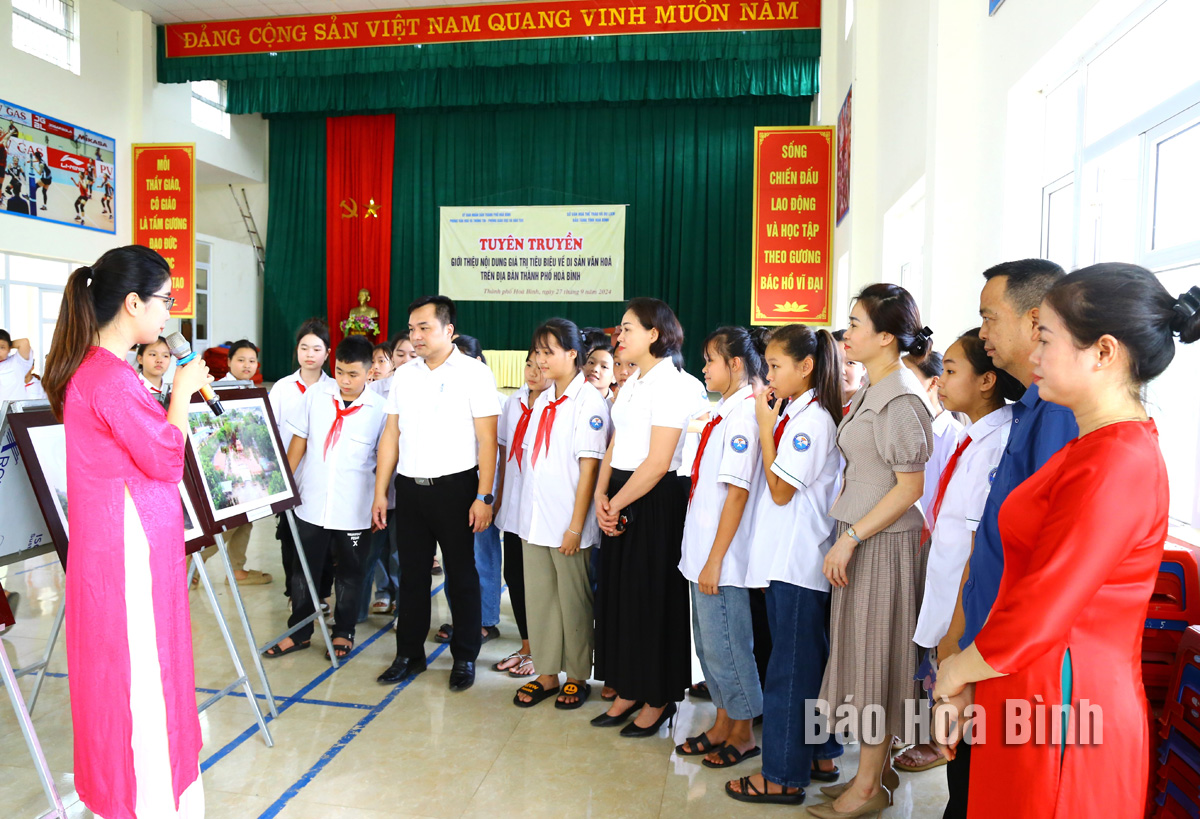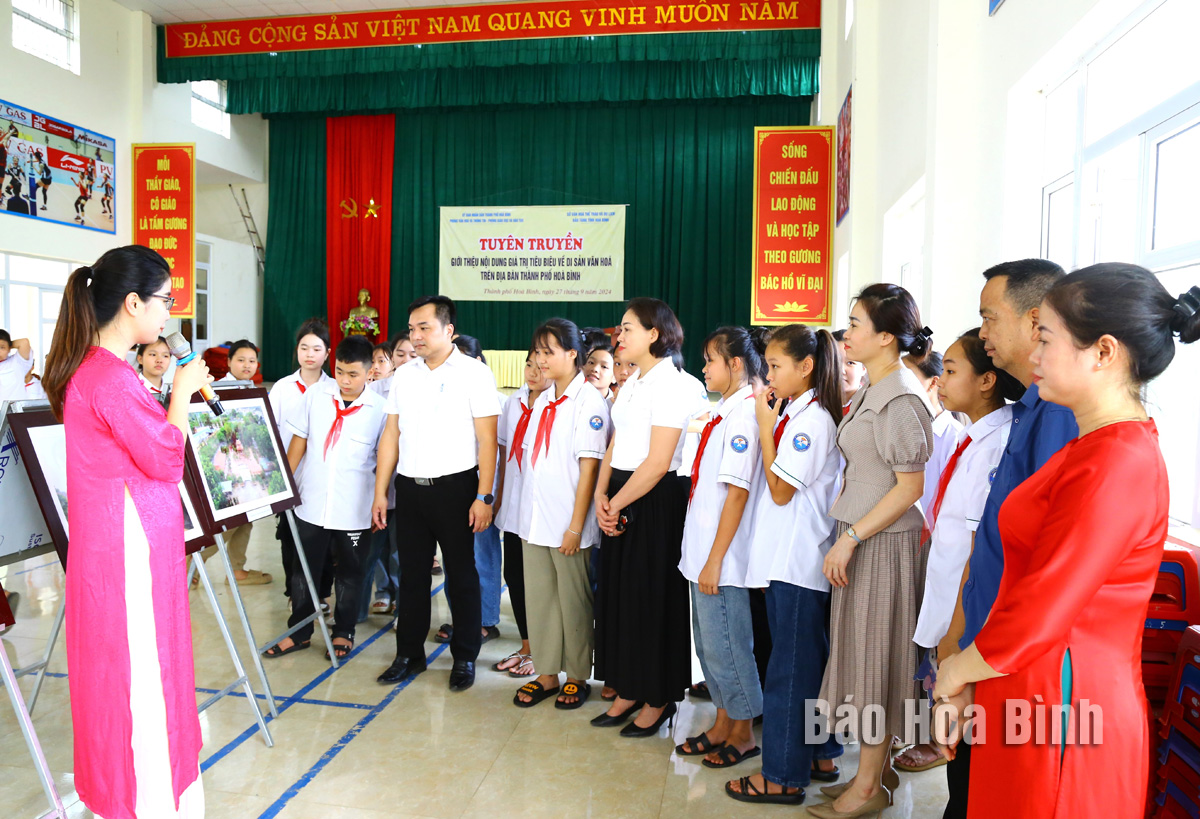
In the afternoon of September 27, the Provincial Museum collaborated with the Culture and Information Department and the Department of Education and Training of Hoa Binh City to organize a promotional event to introduce the outstanding cultural heritage values of the city at Phuc Tien Primary and Secondary School in Quang Tien Commune.

At the event,
the representatives and the students from Phuc Tien Primary and Secondary
School were introduced to the significant cultural heritage sites in Hoa Binh
City.
Currently, Hoa
Binh City has 03 nationally recognized heritage sites, 09 provincially
recognized sites, 11 sites listed by the Provincial People's Committee for
inventory, and hundreds of other sites being well-protected and promoted for
their value. Additionally, the traditional festivals of Muong and Dao ethnic
groups have contributed to the unique cultural identity of this region.
During the
event, over 200 students were introduced to the several notable heritage sites
in Hoa Binh City, such as Hoa Binh Prison historical site in Tan Thinh Ward,
the historical site of the Political Training and Pre-Congress II of the Lao
People's Party in Dan Chu Ward, the scenic Tiên Phi Cave in Tan Hoa Ward, and
Su Ngoi Temple in Quynh Lam Ward...
This promotional
event aimed to provide the students with basic knowledge and a deep
understanding of the core values of local cultural heritage. It also sought to
raise the awareness among the students and the younger generation about the
importance of preserving and promoting the cultural heritage passed down from
their ancestors, contributing to the building of "friendly schools and active
students”.
With an increasingly vibrant and widespread emulation movement aimed at building cultured residential areas and cultured families, Yen Thuy District has been making steady progress toward improving both the material and spiritual well-being of its people, while fostering a civilized, prosperous, beautiful, and progressive community.
Once lacking recreational spaces and community facilities, Residential Group 2 in Quynh Lam Ward (Hoa Binh City) has recently received attention for the construction of a new, spacious, and fully equipped cultural house. The project followed the model of state support combined with public contributions in both labor and funding.
The "All people unite to build cultural life" movement, which has been effectively integrated with Kim Boi district’s socio-economic development goals, is fostering a lively spirit of emulation across local residential areas, hamlets, villages, public agencies, and enterprises. In addition, through the initiative, traditional cultural values are being preserved and promoted, while community solidarity and mutual support in poverty reduction and economic development are being strengthened.
A working delegation of the Hoa Binh provincial People’s Committee led by its Permanent Vice Chairman Nguyen Van Toan on June 11 inspected the progress of a project to build the Mo Muong Cultural Heritage Conservation Space linked to tourism services in Hop Phong commune, Cao Phong district.
Born and growing in the heroic land of Muong Dong, Dinh Thi Kieu Dung, a resident in Bo town of Kim Boi district, in her childhood was nurtured by the sweet lullabies of her grandmother and mother. These melodies deeply imprinted on her soul, becoming an inseparable part of her love for her ethnic group's culture. For over 20 years, this love for her hometown has driven Dung to research, collect, and pass down the cultural values of the Muong people to future generations.
In the final days of May, the Ethnic Art Troupe of Hoa Binh Province organized performances to serve the people in remote, mountainous, and particularly disadvantaged areas within the province. These were not just ordinary artistic shows, but they were the meaningful journeys aimed at spreading cultural values, enhancing the spiritual life of the people and contributing to the preservation of ethnic minority cultural identities.



